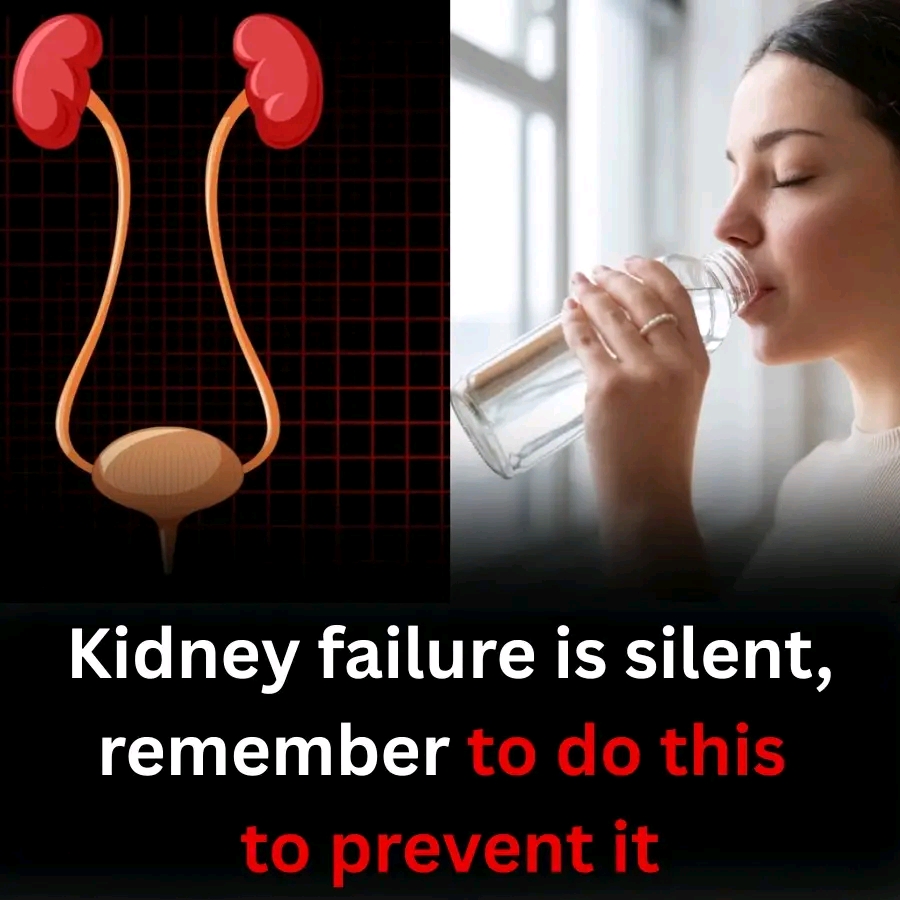Kidney Failure is Silent – Do This to Prevent It Before It’s Too Late

Your kidneys are quiet workers. They filter your blood, remove waste, and balance fluids — all without making a sound. But when they begin to fail, symptoms often appear only in the late stages. That’s why it’s called a “silent killer.” Here’s how you can protect your kidneys starting today.
Why You Should Care:
Kidney failure can develop over years without symptoms. When signs appear, damage is usually advanced. But the good news? It’s preventable with a few simple habits.
Top Prevention Tips to Protect Your Kidneys:
- Drink Plenty of Water
Staying hydrated helps your kidneys flush out toxins. Aim for 6–8 glasses per day unless your doctor advises otherwise. - Avoid Too Much Salt
Excess sodium raises blood pressure, putting strain on your kidneys. Read labels and reduce processed foods. - Manage Blood Sugar
Diabetes is a leading cause of kidney failure. Keep blood sugar levels in check with a healthy diet and regular exercise. - Control Blood Pressure
High blood pressure silently damages your kidneys. Aim for a healthy range (below 130/80 mm Hg). - Limit Painkillers
Long-term or heavy use of NSAIDs (like ibuprofen) can harm your kidneys. Use only when necessary and under guidance. - Don’t Ignore Urinary Changes
Foamy urine, dark color, or needing to go often (especially at night) can signal kidney trouble. Get tested. - Quit Smoking
Smoking slows blood flow to the kidneys and worsens existing problems. It also increases the risk of kidney cancer. - Eat Kidney-Friendly Foods
Opt for berries, apples, leafy greens, and garlic. Avoid high phosphorus and high potassium foods if advised. - Get Regular Checkups
Ask your doctor for a creatinine test and urine albumin test, especially if you have high-risk conditions like diabetes or hypertension. - Stay Physically Active
Even walking 30 minutes a day improves blood flow and supports kidney health.
FAQs
Q: Can kidney damage be reversed?
A: Early-stage kidney damage can be slowed or stopped with lifestyle changes, but late-stage damage is usually permanent.
Q: What foods are hardest on kidneys?
A: Highly processed foods, salty snacks, red meat, and soft drinks are hard on the kidneys.
Q: How often should I check my kidneys?
A: If you’re at high risk (diabetes, hypertension, family history), get tested at least once a year.
Don’t wait for symptoms.
Start taking care of your kidneys now — they work silently, but they deserve your loudest attention.






